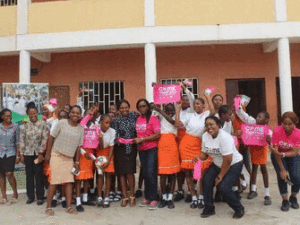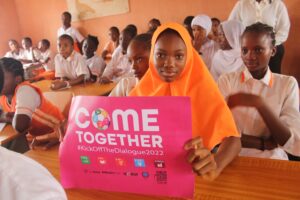MENSTRUAL HEALTH AND HYGIENE DAY, MAY 28, 2022



Menstrual health is a major concern to us at CFHI. This is because despite menstruation being a natural occurrence, up to 60 per cent of the 110.5 million out-of-school children in Nigeria, and 1 in 10 African girls misses school due to their period, according to UNICEF. Most Nigerian girls and young women are often left with no choice but to use unclean napkins, tissue, leaves, newspapers, or nothing at all, during their menstruation, thereby, affecting their general wellbeing.
International Menstrual Health and Hygiene Day (MHMD) is celebrated every year to raise awareness on menstruation and the need to end period poverty and stereotypes surrounding the topic. In May 2022, CFHI in partnership with Real Relief, Denmark continued to provide adequate knowledge on menstrual health to school girls all over the world via the transnational #KickOffTheDialogue2022 campaign. At Foma Academy, Kubwa, Abuja, CFHI facilitated an in-school activity for 76 girls to talk about menstruation and have fun in the process. 50 participants were provided with reusable SafePadsTM, including 3 vulnerable girls who experience severe period poverty at Kagini community, Abuja.
CFHI joined the Federal Ministry of Women Affairs to celebrate MHM 2022 and make menstrual materials available to girls and women in attendance. Aside joining the awareness walk to promote policies that are favorable to women and girls who menstruate, CFHI will continue to provide sustainable solutions to end period poverty, through the production of Safepads in Nigeria. Join the movement, as we continue to provide adequate knowledge on menstrual health and make menstrual materials accessible to all girls and women, irrespective of their social and economic status. As stated in the May edition of our newsletter, with the removal of pink tax, community sensitization, and in-school activities to promote positive social norms and policies, and providing affordable menstrual products, health services, easy access to water, toilet facilities, soap, and disposals, menstrual inequality would be curtailed.

